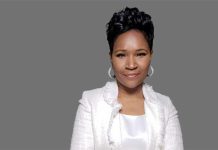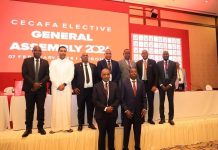
Africa-Press – Eritrea. Mr. President,
Madam Assistant-Secretary General,
Excellencies,
Colleagues,
Ladies and Gentlemen.
Allow me, at the outset, to congratulate you, Ambassador Omar Zniber, on your election as President of the Human Rights Council. We are confident that under your leadership, the Council`s deliberations will be a great success. You can always count, Excellency, on Eritrea’s full support in discharging your duties as the President of the Council.
Mr. President,
Eritrea has been a victim of this politicized and selective mandate for the last 12 years. A mandate that continues to be part of a failed attempt to achieve a self-fulfilling prophecy of human rights crisis through vilification, excursion of pressure, and diversion from nation-building efforts. Despite that Eritrea has responded to continuous out-of-context, politicized, and oftentimes irresponsible allegations. Today, rather than delving into the substance of these reports, we wish to underscore several crucial points.
First: we would like to reiterate our full commitment to the promotion and protection of human rights in its broadest dimensions. This commitment lies at the heart of our nationhood. A nationhood that was realized after a long-drawn armed struggle for the human rights of the Eritrean people. Despite harsh external conditions, Eritrea has remained focused in advancing its objective to achieve a meaningful improvement in the lives of its people. Having forged a development policy anchored in Social Justice and self-reliance.
Over the past decades, it has made consistent investments in infrastructural developments and it remains committed to a long-term and sustainable development policy that ensures the participation and ownership by all segments of its diverse society. The outcome of this policy has placed it in the right direction towards a dignified life for its people.
Second:human rights are at the center of all global issues we confront today. Issues that no country can single-handedly tackle. Indeed, to effectively and collectively respond to these challenges, genuine dialogue and dignified partnerships are required. This involves, in a nutshell: i) cooperation based on adherence to international law and the UN Charter; ii) dialogues that take into account, and not ignore, the interests and approaches of all states, including the global south countries.
Third: the practices of Country-specific mandates are politicized, confrontational, and counterproductive. These mandates exploit human rights for geopolitical purposes making the Council a political tool. Every state has its fair share of human rights gaps. After all, the pursuit, realization, and sustained enjoyment of human rights is a dynamic continuum. It should be construed as a work-in-progress; not as a finite, one-off event. Indeed, it is a whole-sum process that must be addressed through genuine dialogue and engagement at the international level.
It is important to note at this juncture that the future participation and cooperation of the Government of the State of Eritrea in upcoming HRC platforms will be negatively affected should this unfair and unjust mandate and treatment continue.
Fourth: the imposition of Unilateral Conceive Measure, by some countries, is contrary to the promotion of human rights, principles of the United Nations Charter, and international relations. UCMs have never been about human rights. On the contrary, they impede the affected populations from the full realization of their human rights.
Fifth: There are glaring double standards in responding to violations exhibited by this very Council. While swift actions are taken in certain scenarios, there is a deafening silence and inaction when it comes to addressing others.
Mr. President,
Justice should not be selective. The Council should remain true to its mandate of promoting and protecting all human rights for all. We want to see a Council whose work is informed by the principles of universality, indivisibility, interdependence, and interrelatedness of all human rights. We will continue to work for a Council that promotes constructive engagement, dialogue, and effective cooperation based on mutual respect and understanding.
Finally Mr. President,on a positive note, I would like to share that Eritrea submitted its fourth UPR report a few weeks ago. UPR is a universally recognized mechanism of the Council. Because, simply put, it is a state-driven peer review mechanism and the best tool to address human rights in all countries in an equal manner.
The State of Eritrea takes all necessary measures to guarantee the well-being of all its citizens and remains committed to the promotion of human rights and fulfillment of its obligations under international and national laws.
I thank you.
For More News And Analysis About Eritrea Follow Africa-Press






